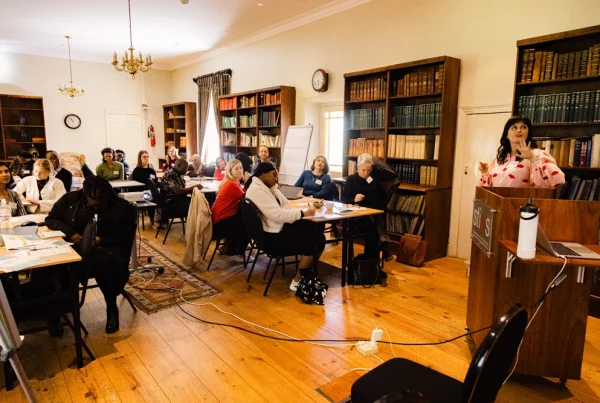On May 27, 2019, RESEP (Stellenbosch University), Bath University and the Western Cape Department of Human Settlements hosted a symposium on subsidised housing at the Stellenbosch Institute for Advanced Study (STIAS). The event was well attended and allowed participants to share ideas about challenges South Africa is facing regarding housing. By the end of the symposium, a sense of hope seemed to have emerged from amongst the attendees. Although it was acknowledged by all that a single symposium was not enough to change the housing situation in South Africa, it was indeed considered a step in the right direction.
Background
In 1993, the South African government embarked on what would soon become the world’s most ambitious and largest subsidised housing scheme with 4 million houses built to date. The symposium was held to discuss and debate the lessons learnt from two decades of subsidised housing in South Africa. The discussion was rooted in evidence, but was also critical and encompassing, covering a diverse set of topics, including governance, monitoring, technology and community voice. The intention was also to bridge the researcher-practitioner divide and so researchers, policymakers, advocacy organisations, construction industry representatives and community representatives were all invited. The aim of the symposium was specifically to deepen the dialogue on subsidised housing and to inform and guide the public debate on the priorities for reform and innovation in this sector.
The event was structured as a discussion of three pieces of new research, discussed below, and sought to address three of the most prominent shortfalls of the subsidised housing programme, namely the perceived quality and value-added of the houses; the ability of these houses to serve as collateral; and marketable wealth in the formal economy and the community engagement processes.
The day ended with a panel discussion composed of Kecia Rust, Jan Wium and Paul Whelan, who debated the research gaps and future directions for collaboration between academics and policymakers working in this sector.
The three studies that were discussed
Perceived quality and value of subsidised housing (Bath University, RESEP (Stellenbosch University) & Western Cape Department of Human Settlements)
The interdisciplinary Bath and Stellenbosch University consortium experimented with innovative community-rooted ways to improve the quality of subsidised housing. In close collaboration with the Western Cape Department of Human Settlements, they have trialled a quality improvement intervention as well as new survey instruments to assess the end-line technical quality of subsidised housing and the experienced or perceived value of the house by the owners. Marisa von Fintel reported back on the findings of the team’s pilot project in the Rooidakke community in the Theewaterskloof municipality. The research team also shared plans for a scalable technology-based quality monitoring intervention that addresses both upward and downward accountability.
Subsidised housing as marketable wealth (71point4, Centre for Affordable Housing, National Treasury and Cities Support Programme)
In June 2018 the centre for Affordable Housing and the consultancy 71point4 established a housing transaction support centre (TSC) in Khayelitsha, Cape Town. The TSC offers a range of services to lower income households who wish to participate in formal property market transactions. Since then the TSC has worked with over 100 clients, mostly on matters relating to title deeds. The experiences of these clients, varied as they are, all highlight the importance of well-aligned policy and sound, accessible administrative processes. Kecia Rust shared some of the lessons they have learnt so far and additionally talked about how this critical service can be scaled up.
Co-learning and co-designing change with communities (uMAMA team, Stellenbosch University)
The uMAMA team presented research on deeper community engagement where the focus is on co-designing, co-researching and co-leaning. In a changing and complex world, there is a growing emphasis on the need for research that has societal impact. The Urban Modelling And Metabolism Assessment (uMAMA) research group, however, takes an approach beyond research for society towards research with society, which includes elements of co-designing, co-researching and co-learning with communities. Suzanne Smit from uMAMA described the case of Enkanini informal settlement in Stellenbosch and how each of these elements was incorporated into the study by taking a bottom-up approach in uncovering the societal metabolism of the settlement.






